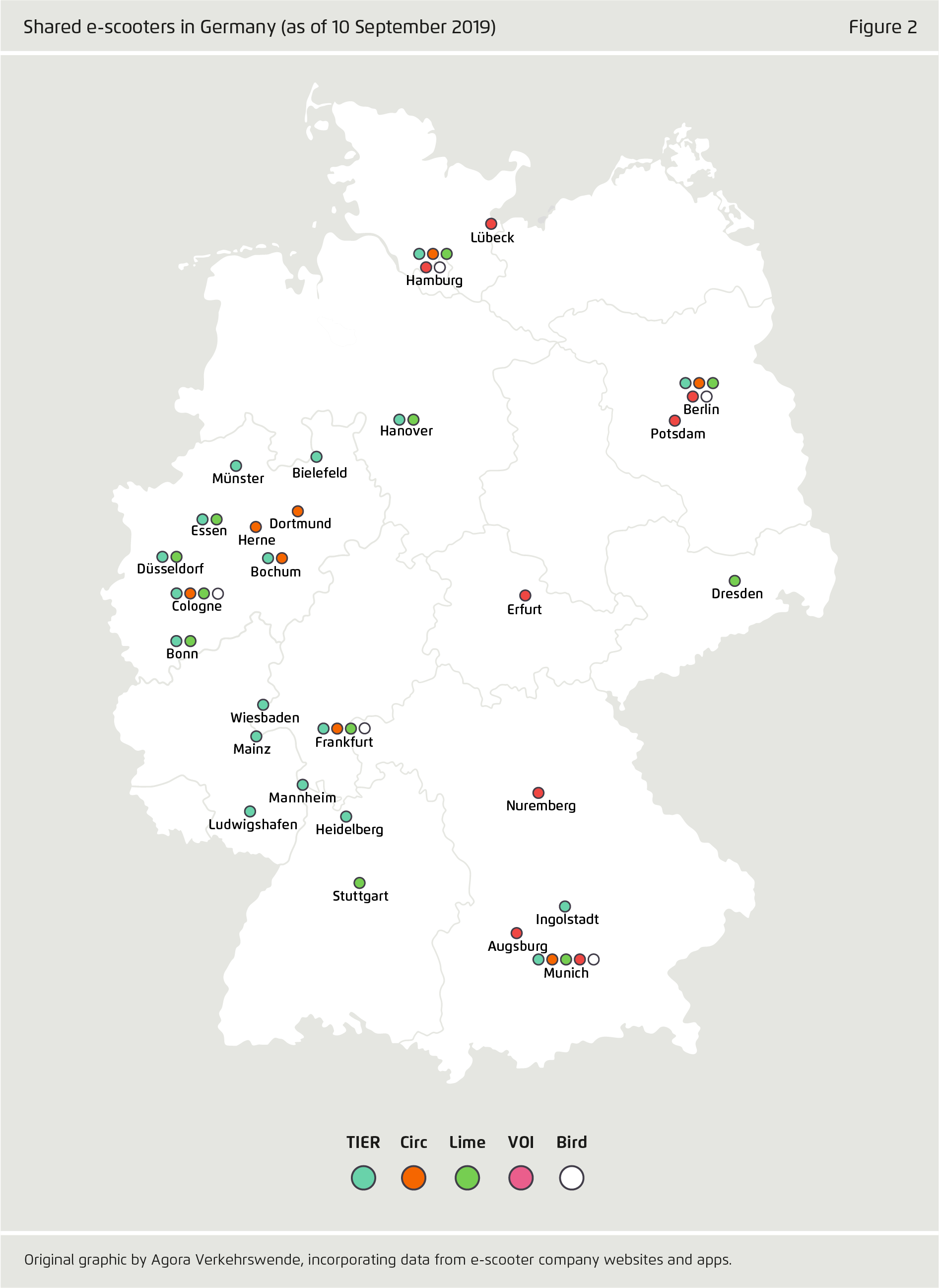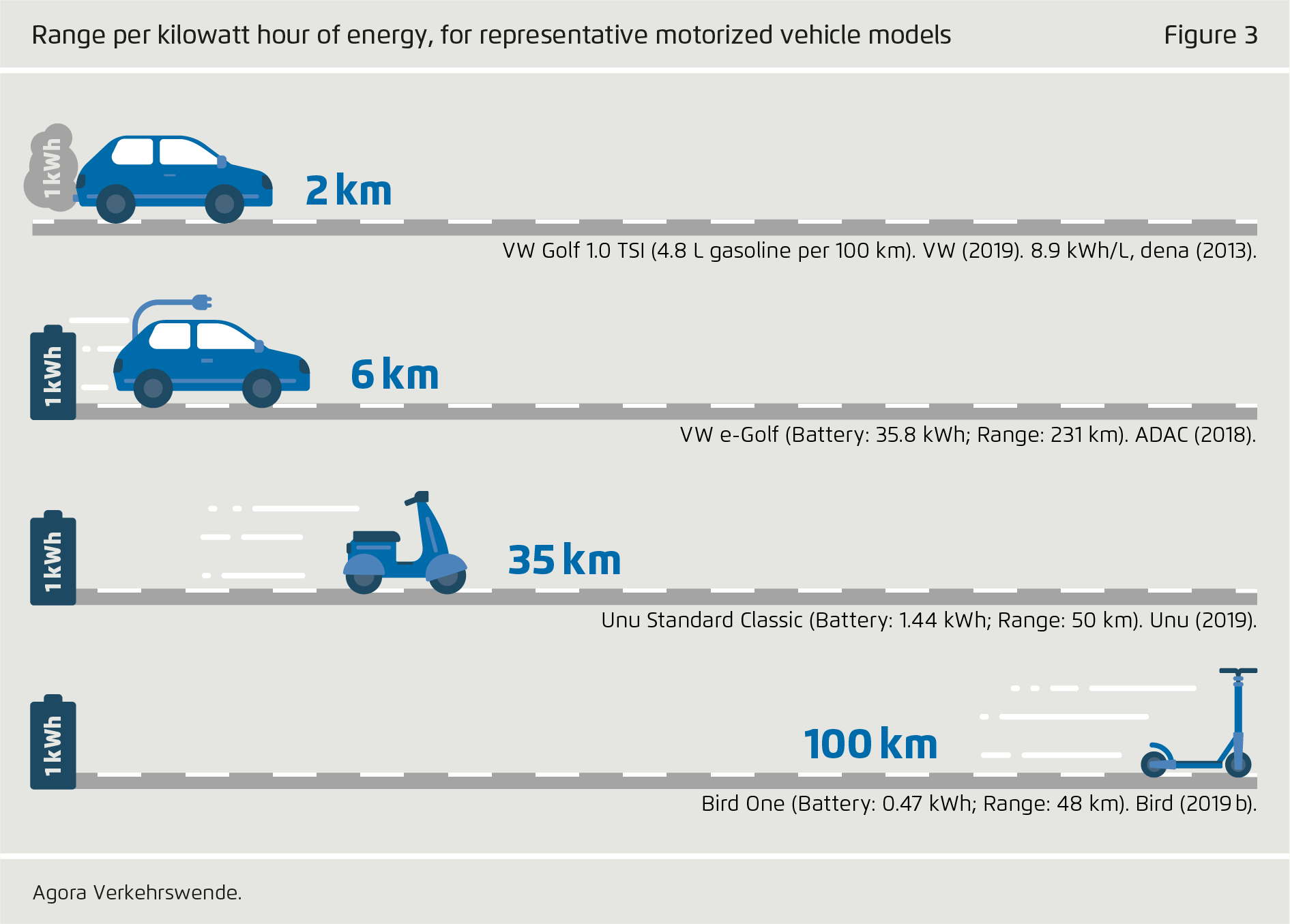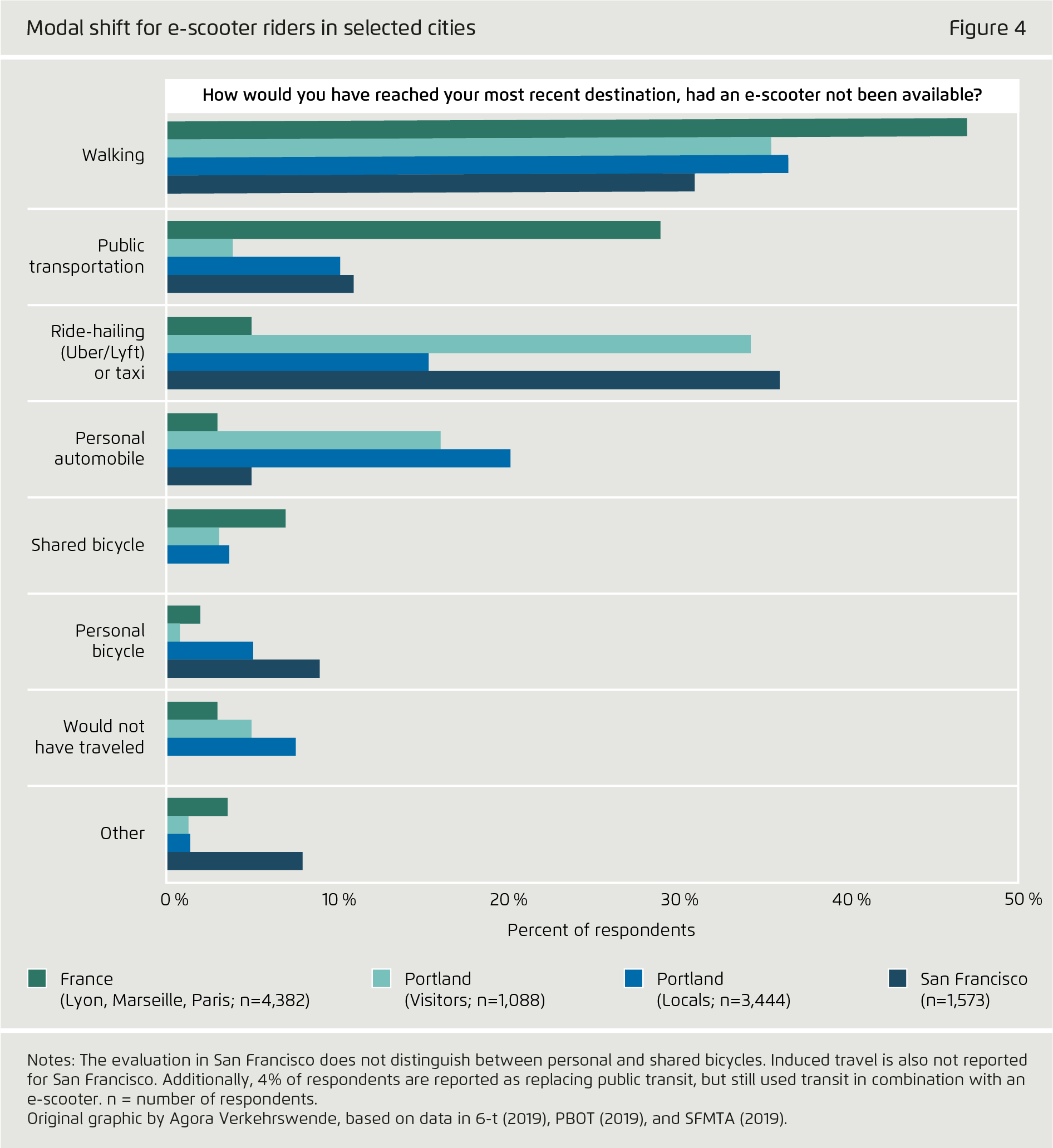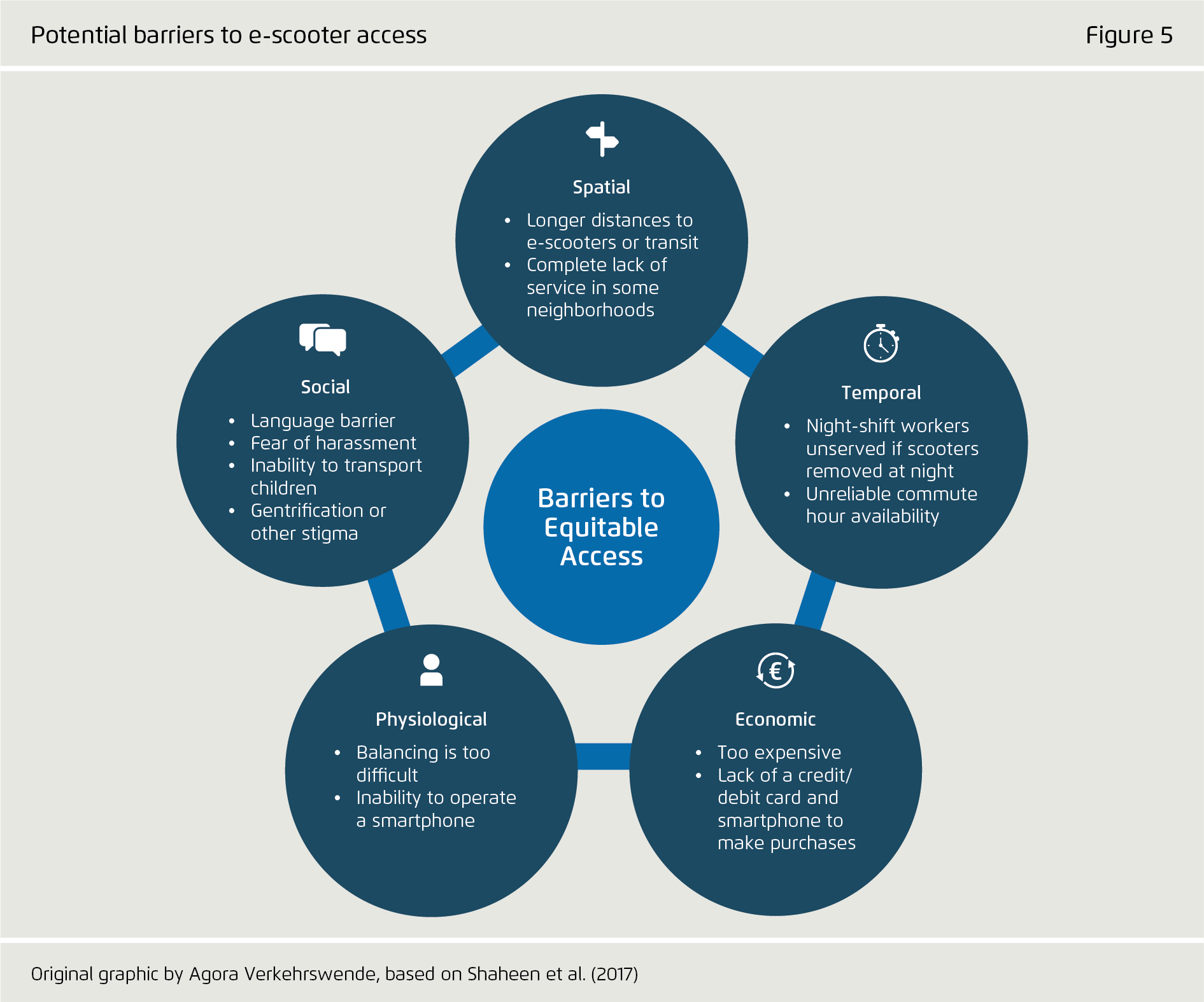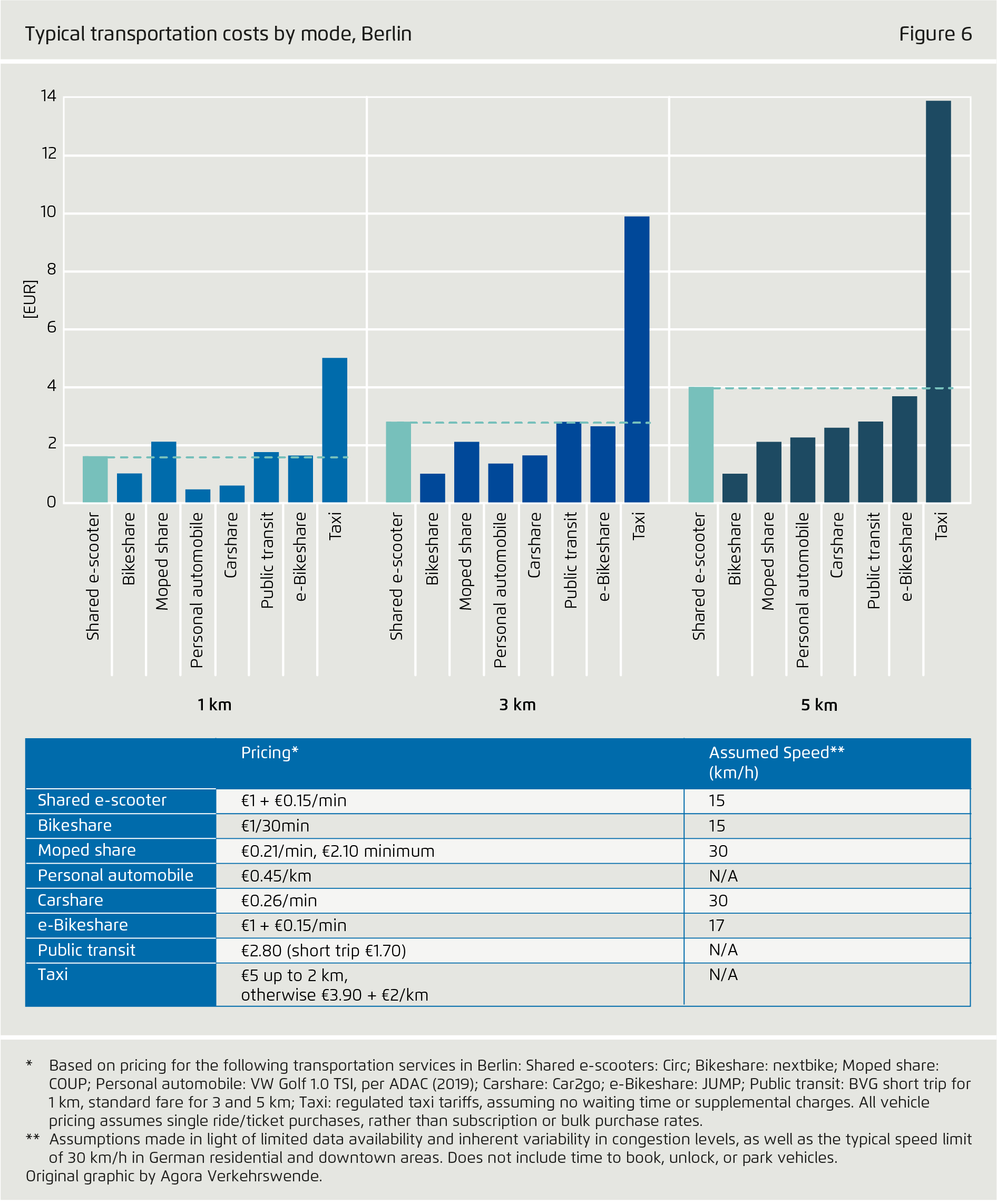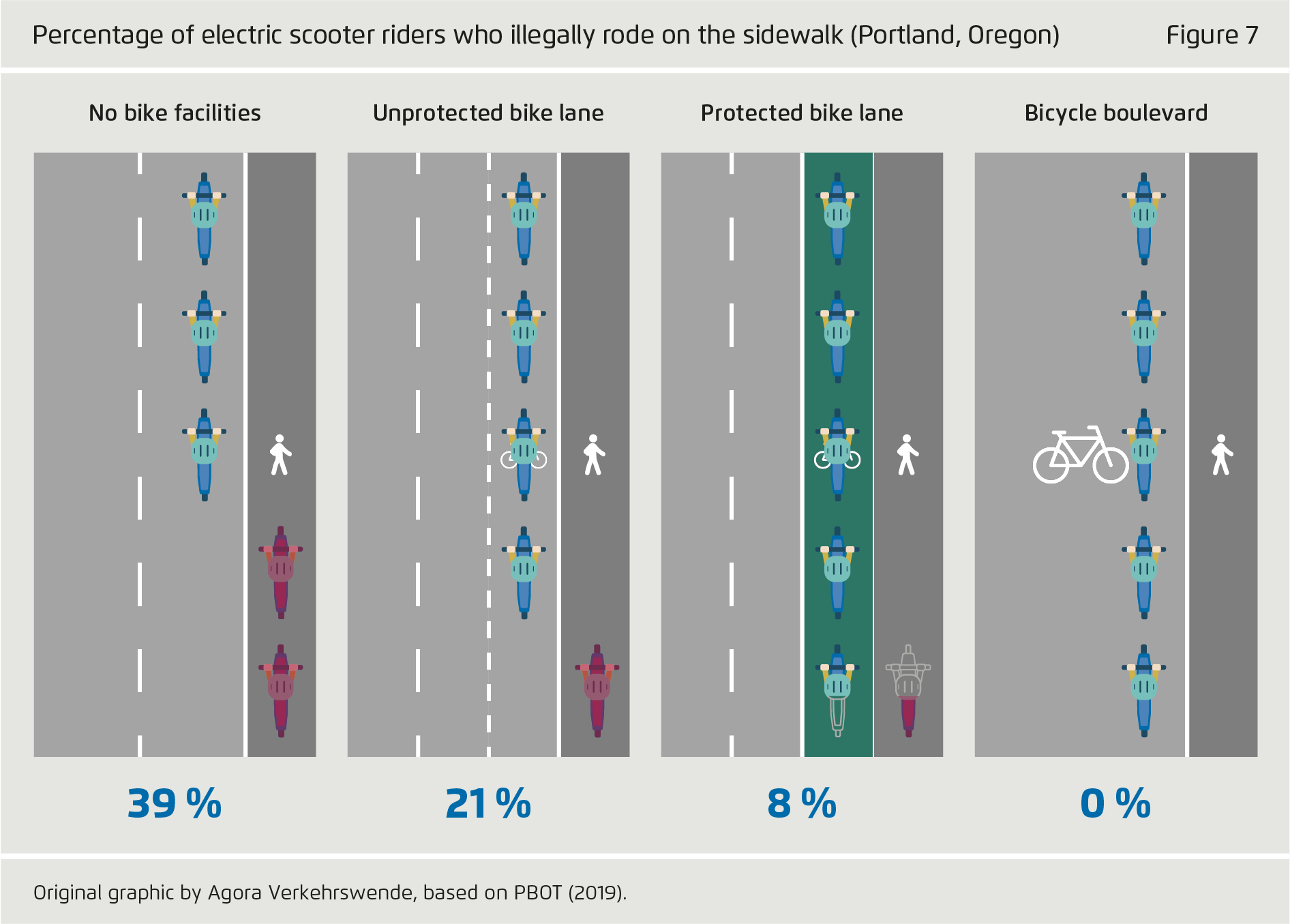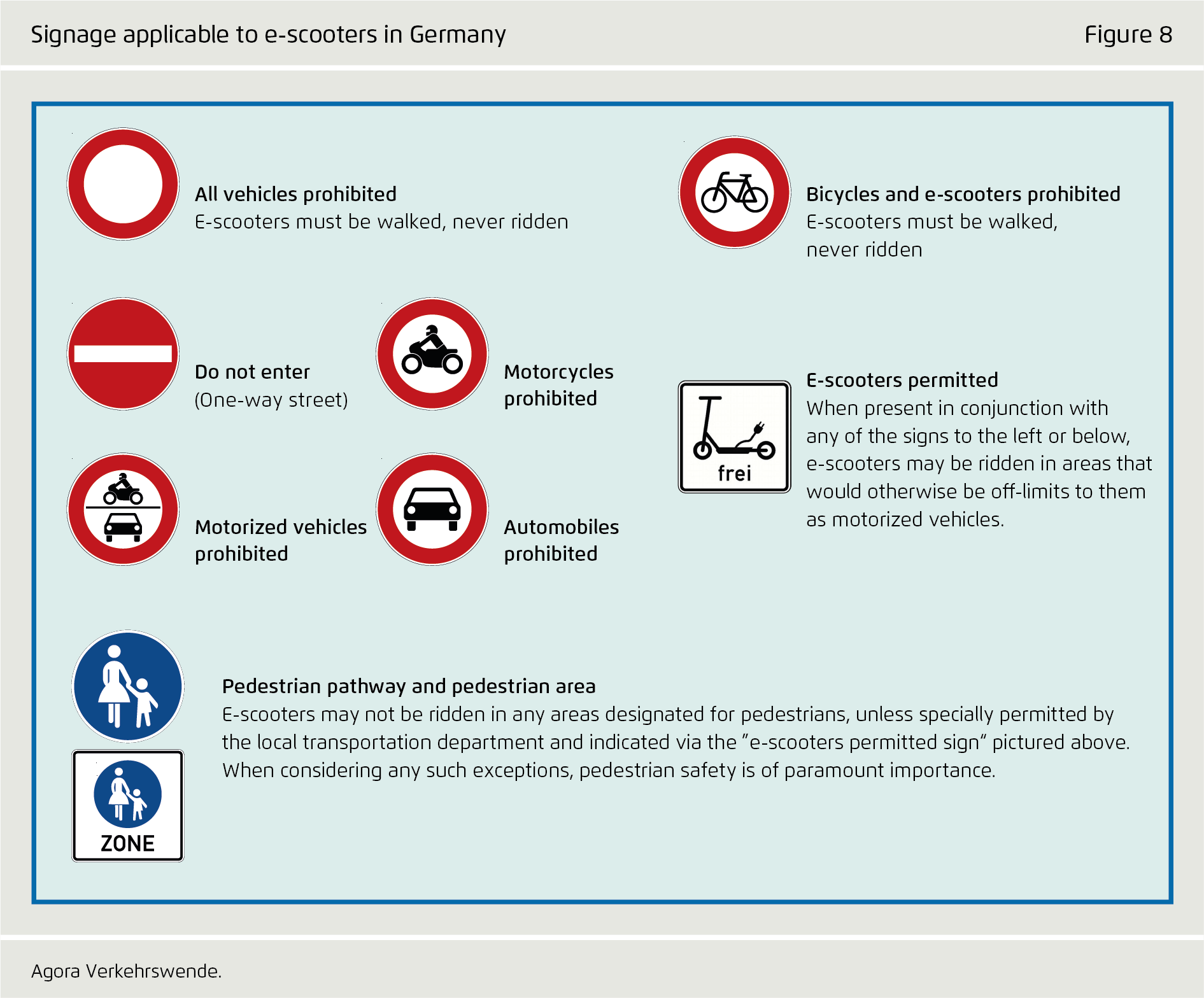- Authors
- Joanna Gubman, Alexander Jung, Thomas Kiel, Jan Strehmann
- Publication number
- 29-2019-EN
- Version number
- 1.0
- Publication date
-
25 September 2019
- Pages
- 46
- Suggested Citation
- Agora Verkehrswende (2019): Shared E-Scooters: Paving the Road Ahead. Policy Recommendations for Local Government.
This content is also available in: German
Shared E-Scooters: Paving the Road Ahead
Policy Recommendations for Local Government

Preface
With the passage of the Small Electric Vehicles Act (eKFV), e-scooters were declared street-legal in Germany as of 15 June 2019. E-scooter companies, already active around the world, moved quickly to enter the German market. By late August, shared scooters were on the streets of over 20 cities across the country. Particularly in light of the sometimes rocky rollout of dockless shared bicycles in the past, this rapid expansion has prompted a number of questions on the part of cities and towns: What are the impacts of e-scooters on the environment, the climate, and transportation systems? How can e-scooters be operated in a manner that supports the needs of the municipality and its residents, or at least does not have negative impacts? And what are appropriate mechanisms to regulate e-scooters?
To aid in answering these questions, this report – published by the Association of German Cities (DST), the Association of German Cities and Municipalities (DStGB) and Agora Verkehrswende – provides a synthesis of the first, primarily international, experiences with shared e-scooters, describes the opportunities and challenges they bring with them, and offers recommendations for e-scooter planning and regulation in cities and towns both in Germany and beyond. The goal is not only to provide a basis for compromise that incorporates the interests of local governments, e-scooter companies, and community members, but also to contribute to sober, thoughtful discussion of this new form of transportation based on the latest data and best practices. In developing this paper, the authors engaged diverse stakeholders in conversation: city staff, advocacy groups, e-scooter companies, and investors. The paper was originally published in German; this translation provides additional context and brings the discussion in Germany to an international audience.
Bibliographical data
All figures in this publication
Requirements of the German Small Electric Vehicles Act
From Shared E-Scooters: Paving the Road Ahead on page 1
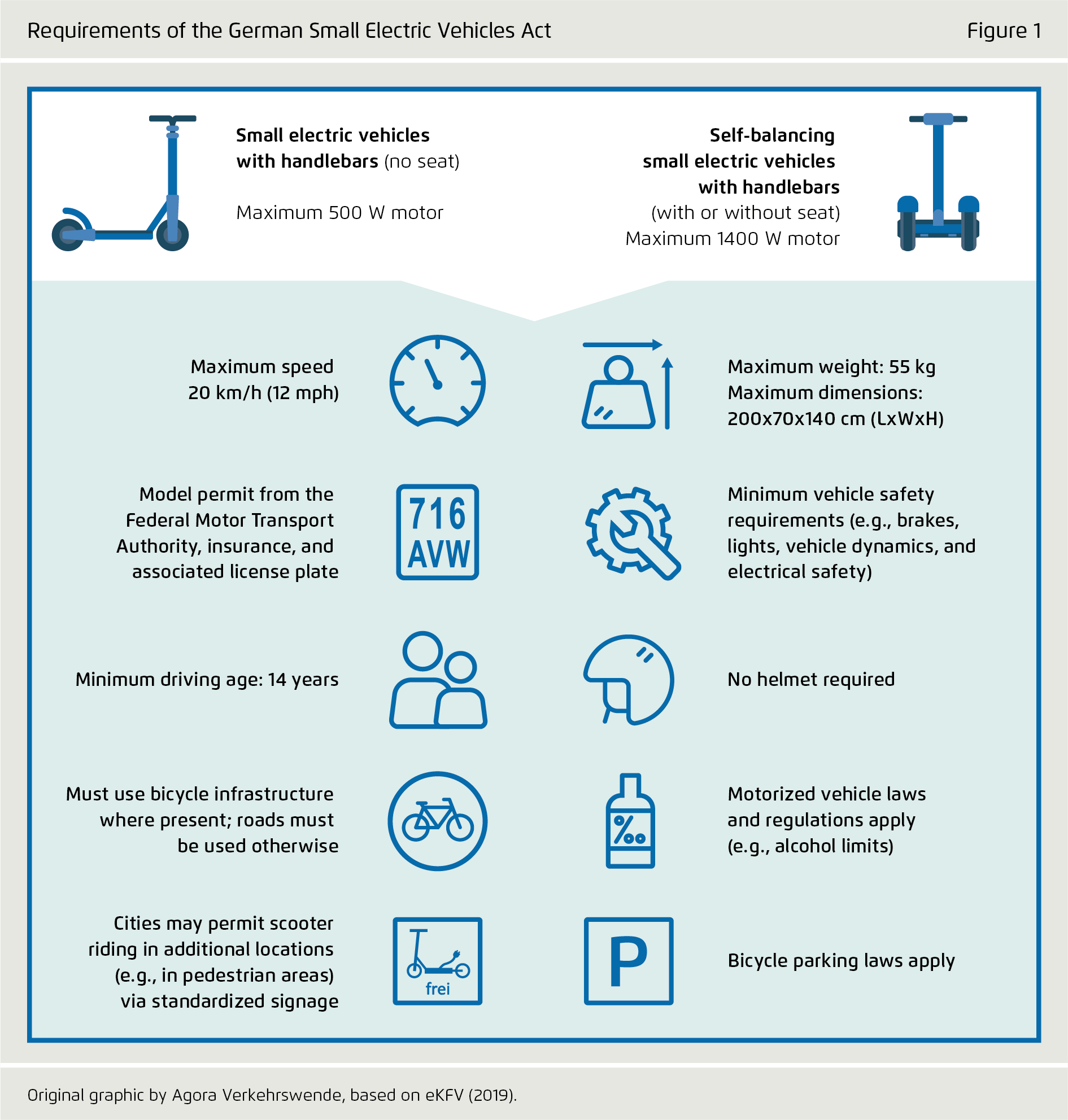
Shared e-scooters in Germany (as of 10 September 2019)
From Shared E-Scooters: Paving the Road Ahead on page 2
